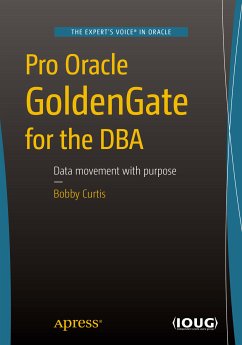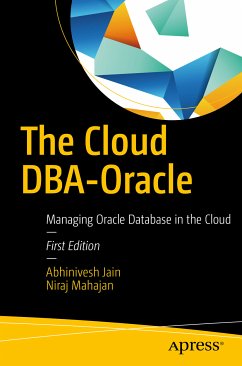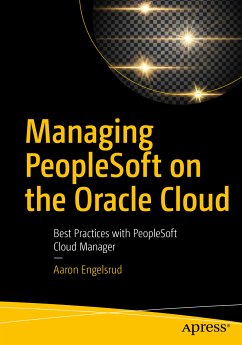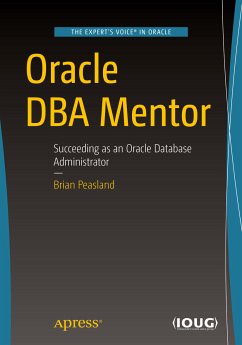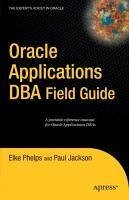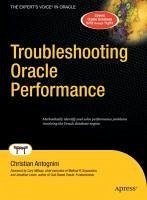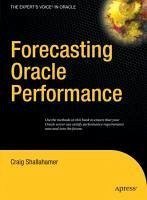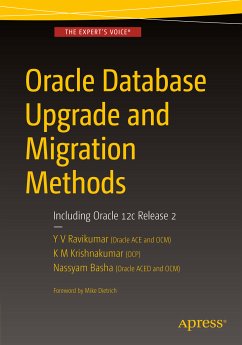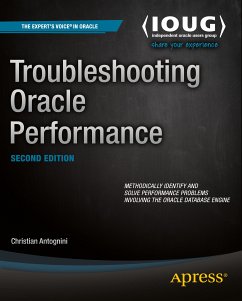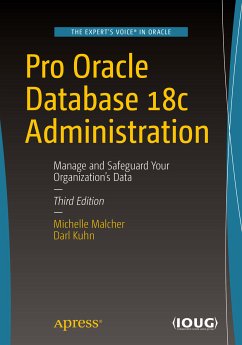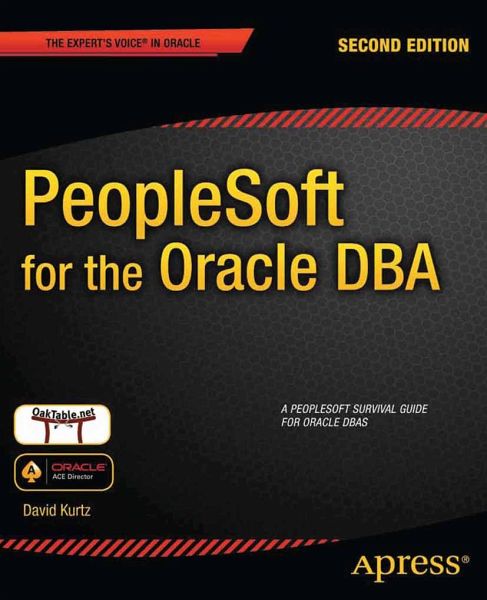
PeopleSoft for the Oracle DBA (eBook, PDF)
Versandkostenfrei!
Sofort per Download lieferbar
50,95 €
inkl. MwSt.
Weitere Ausgaben:

PAYBACK Punkte
25 °P sammeln!
PeopleSoft for the Oracle DBA, Second Edition stands on the boundary between the PeopleSoft application and the Oracle database. This new edition of David Kurtz's book is freshly revised, showing how to tame the beast and manage Oracle successfully in a PeopleSoft environment.You'll learn about PeopleSoft's Internet architecture and its use of Oracle's Tuxedo Application Server. You'll find full coverage of key database issues such as indexing, connectivity, and tablespace usage as they apply to PeopleSoft. Kurtz also provides some of the best advice and information to be found anywhere on man...
PeopleSoft for the Oracle DBA, Second Edition stands on the boundary between the PeopleSoft application and the Oracle database. This new edition of David Kurtz's book is freshly revised, showing how to tame the beast and manage Oracle successfully in a PeopleSoft environment.
You'll learn about PeopleSoft's Internet architecture and its use of Oracle's Tuxedo Application Server. You'll find full coverage of key database issues such as indexing, connectivity, and tablespace usage as they apply to PeopleSoft. Kurtz also provides some of the best advice and information to be found anywhere on managing and troubleshooting performance issues in a PeopleSoft environment. The solid coverage of performance troubleshooting is enough by itself to make PeopleSoft for the Oracle DBA a must-have book for any Oracle Database administrator working in support of a PeopleSoft environment.
You'll learn about PeopleSoft's Internet architecture and its use of Oracle's Tuxedo Application Server. You'll find full coverage of key database issues such as indexing, connectivity, and tablespace usage as they apply to PeopleSoft. Kurtz also provides some of the best advice and information to be found anywhere on managing and troubleshooting performance issues in a PeopleSoft environment. The solid coverage of performance troubleshooting is enough by itself to make PeopleSoft for the Oracle DBA a must-have book for any Oracle Database administrator working in support of a PeopleSoft environment.
- Explains PeopleSoft's technical architecture as it relates to Oracle Database
- Demonstrates how to instrument and measure the performance of PeopleSoft
- Provides techniques to troubleshoot and resolve performance problems
Dieser Download kann aus rechtlichen Gründen nur mit Rechnungsadresse in A, B, BG, CY, CZ, D, DK, EW, E, FIN, F, GR, HR, H, IRL, I, LT, L, LR, M, NL, PL, P, R, S, SLO, SK ausgeliefert werden.




